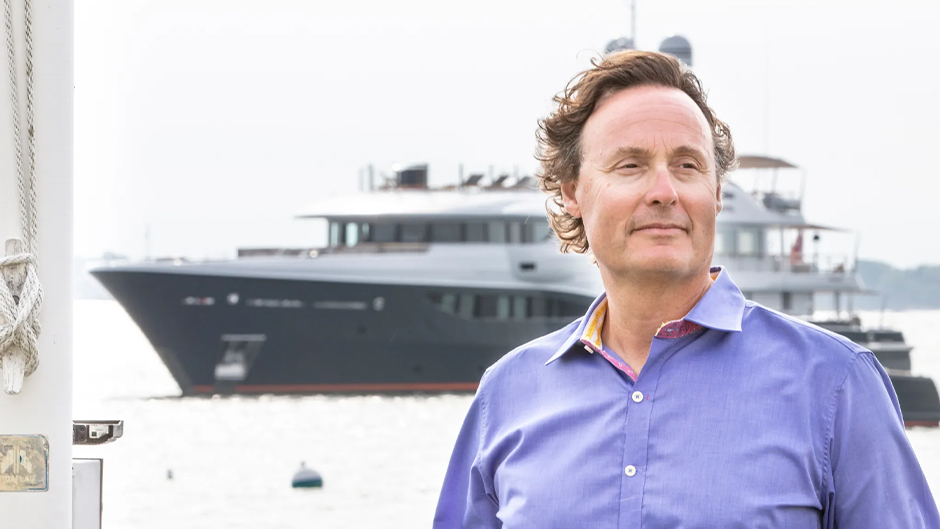Renowned biomedical scientist and entrepreneur Jonathan Rothberg, Ph.D., is dedicated to driving innovation in engineering. “The best way to predict the future is to build it,” said Rothberg, whose recent gift to the University of Miami College of Engineering created the Miami Engineering Rothberg Catalyzer Award.
“Everything I do is focused on helping the health of people I love or the global environment,” said Rothberg, who has founded multiple life science and medical device companies, and was honored by President Obama with the National Medal of Technology and Innovation—the nation’s highest honor for technological achievement—for inventing and commercializing high-speed DNA sequencing.
After spending most of his life in New England, working with researchers and students at Yale University and other leading institutions, Rothberg and his family recently moved to Miami, where he is seeking to spur innovation through building deep relationships with the University of Miami community.
“I enjoy starting companies with co-founders, and relationships with universities are critical to my success,” said Rothberg, who will be inducted into the Florida Investors Hall of Fame this fall. “Miami is strategically located to tap the talent of the Southern Hemisphere, while the University’s College of Engineering has tremendous resources, including one of the most sophisticated 3D fabrication labs in the world.”
Now, Rothberg is focusing on the potential of generative artificial intelligence applications like ChatGPT to advance human health and the environment. “Historically, AI can solve problems. Now generative AI is showing creativity. For instance, designing an enzyme to break down plastics, examining retina scans for signs of Alzheimer’s disease, and for gene sequencing.”
Pioneering biomedical engineering
Born in 1963 in New Haven, Connecticut, to a family of entrepreneurs, Rothberg earned a B.S. in chemical engineering from Carnegie Mellon and an M.S., M.Phil., and Ph.D. in biology from Yale, where he started his first company, CuraGen, as a graduate student in 1991. One of the first genomics companies, CuraGen was valued at $5 billion before going public in 1999. Next, Rothberg founded 454 Life Sciences, which introduced massively parallel (“next-gen”) DNA genome sequencing, and Ion Torrent, which used semiconductor chip-based sequencing to pave the way for the “$1,000 genome.” He has over 400 patents and is regarded as the inventor of next-generation gene sequencing technology.
To multiply his contributions to biomedical engineering, Rothberg formed 4Catalyzer, a health tech incubator dedicated to making a global impact through bold innovations in medicine, engineering, machine learning, life sciences, biotech, and climate tech.
One success story is Butterfly Network’s innovative handheld whole-body ultrasound scanner that displays real-time images on a smartphone. “Today, every manned SpaceX launch carries Butterfly IQ diagnostic technology,” he said.
The next generation of founders
Now, Rothberg is looking for the next generation of 4Catalyzer founders at the University’s College of Engineering. “It’s going to be an exciting decade, adding AI to biomedical screening, diagnostic, and treatment devices and services,” he said.
This summer Rothberg is bringing computer, engineering, and chemistry students from across the U.S. for internships onboard his research vessel, the Gene Chaser, whose “venture studio” includes a machine shop and molecular biology and chemistry labs. “We want to leverage AI and develop new tools for medicine and the environment,” he said.
Meanwhile, Rothberg was excited about seeing the College of Engineering student team Catalyzer Award presentations in May, noting that two would appeal to him as a co-founder. In first place was “HemoFix,” with students Joseph Cherubin and Timothy Arcari; second place went to “Gaitway Enterprises” with Ravi Akhmadeyev, Shlaina Fleurisme, Allison Kelley, and Noah Koike.
“This is a very exciting time for the College of Engineering,” said Samiul Amin, professor of chemical, environmental, and materials engineering, who mentored the students with Suhrud Rajguru, professor of biomedical engineering. “This award competition is a tremendous opportunity for our biotech students to fully realize the potential of their innovative technical solutions. This collaboration will play a critical role in further enhancing the innovation and start-up ecosystem through the College of Engineering and widely across the University of Miami.”

